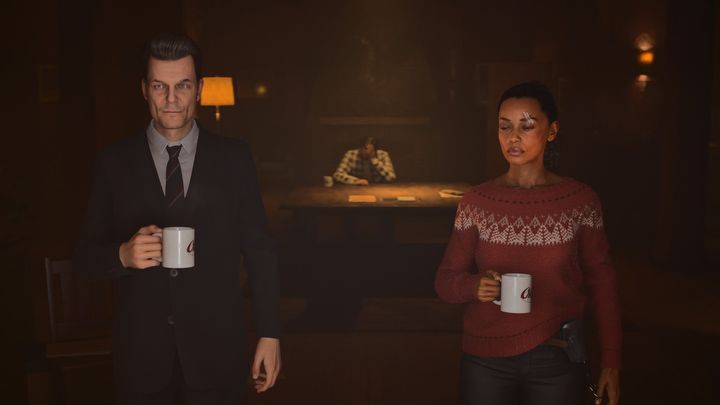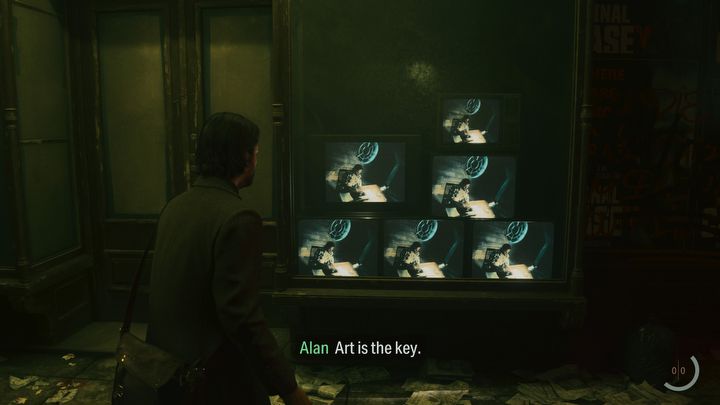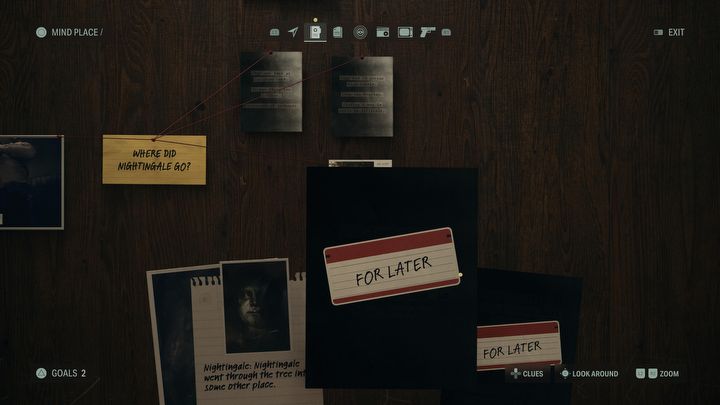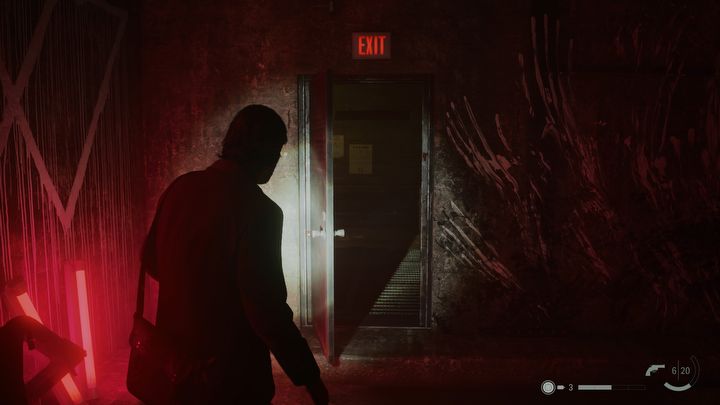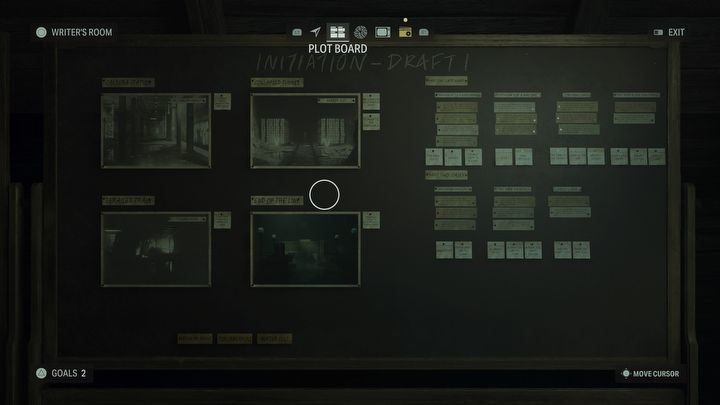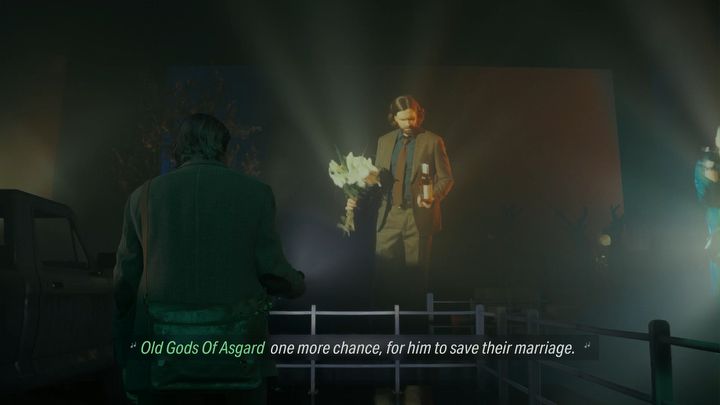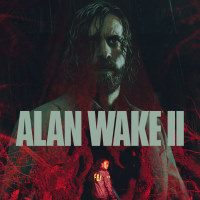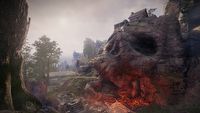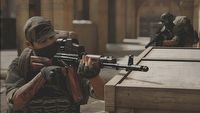Alan Wake 2 According to Our Team - Yay or Nay?
Is Alan Wake 2 really delightful? A great game is great, but opinions among humans are always divided.
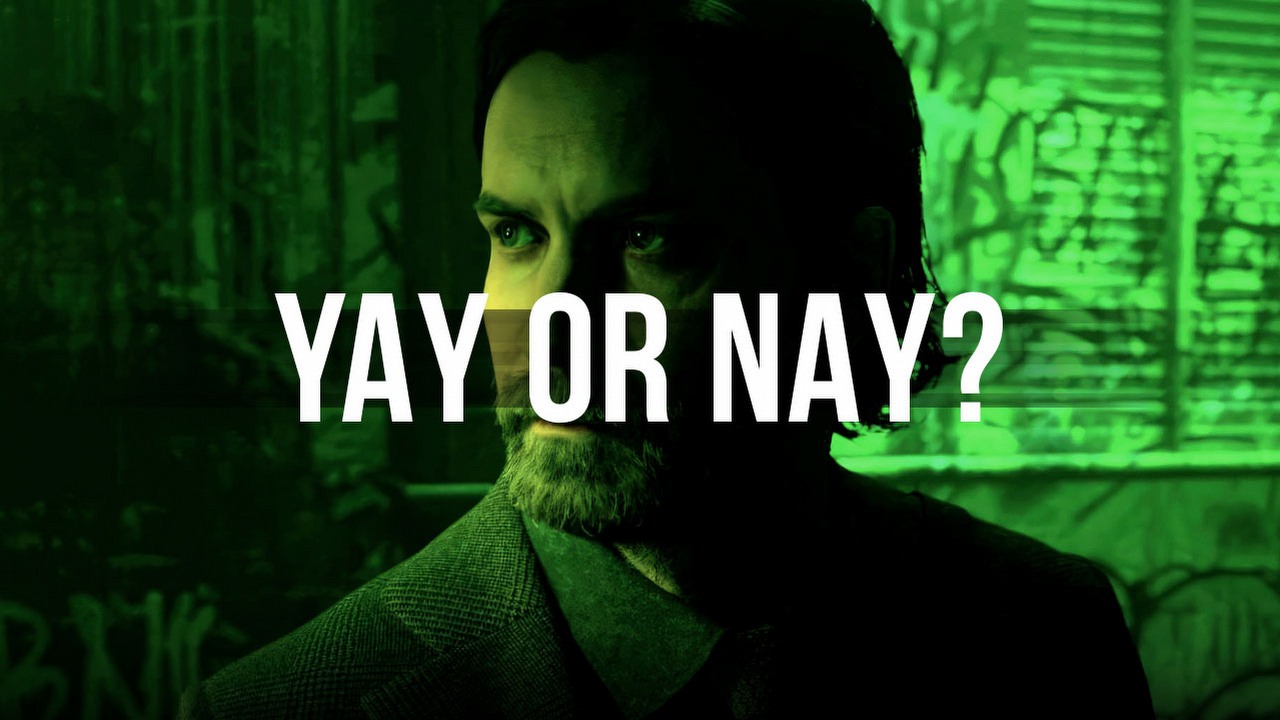
Przemek, who isn't impressed

Przemek Bartula
Finally. I finished Alan Wake 2. It took me longer than I expected, but trust me: it was a pure torment and suffering, full of irritation, anger, and ideological contemplation about the purpose, the reason, and the why. I didn't do it for recognition and everlasting praise, but for you to understand the value of spending your money on this game.
Let's be serious for a moment. At its release, Alan Wake 2 was already considered by many journalists - including several of my editorial colleagues - and gamers to be a phenomenon and a contender for game of the year, capable of competing with Baldur's Gate 3. There was no choice: I had to check it myself. And my feelings are completely different from the opinions of those praising Alan. I have a strange impression that some of the audience may have been swayed by the way Remedy portrayed the titular character's fight against evil, genre twists, and simply... originality - and based their game rating solely on this. Sure, it's possible to find this game appealing and get swept up in it, but in my view, what makes a film or series brilliant isn't sufficient to achieve the same with a game. Because the games differ from the film in one small detail: gameplay. In this aspect, Alan Wake 2 unfortunately lies and squeals.
Hello, is gameplay there?
If you were to piece together the entire narrative layer, the beautiful graphic design, and the heavily limited locations where we have to run around from point A to B, we would get a neat "walking simulator" for about 7-8 hours. There are voices here and there saying that this genre is gone - I assume precisely because of the lack of engaging gameplay - but Alan Wake 2 would definitely defend itself, just like Firewatch did. Unfortunately, the devs decided to introduce additional features to the game, including combat and a special location that symbolizes our mind, where we connect facts by analyzing acquired information and clues. And the jump scares, of course. Believe me, these three things completely ruined my experience of the game.
Let's start with the combat. This element is considered to be one of the weakest in the first installment, as it lacked variety and became simply boring in the long run. This has been changed - instead of boredom and repetition, we have irritation. This results from the combination of two factors. First of all, the characters move as if they were 70-year-olds supported by walkers (even the FBI agent, who undergoes routine fitness tests) and have a very limited range of movements, including only one dodge and one type of close combat attack. Secondly, the game is extremely dark, and our opponents are obscured, blurry figures that we often just walk past while moving through the locations. Thus, it's not uncommon for someone to attack us from the side - someone we hadn't noticed before - and before our slow teddy reacts, he's on the ground, and some guy stabs him with a knife. As soon as we manage to free ourselves and break away, another one is already waiting, and... we'-re dead in an instant. This by itself wouldn't be too bad, but the game only saves the game from time to time, so it's not unusual to die without reason 3-4 times, and then go back 5 minutes those 3-4 times and go through the same story steps, listening to the same conversations.
Combat is boring, but investigations are bland
Examining the evidence and connecting the facts is simply a facade, an empty shell designed to look good and prolong the game, but it actually prevents us from engaging in any detective work or independent analysis of the facts. That's because we can't draw conclusions other than those planned by the developers. Every clue, piece of evidence, or thought must be connected with others as if it was predefined. And that's all. No chance to connect the dots on your own. After the initial excitement about this aspect of the game, you can then click randomly - you can't go wrong, and the given fact will be added where it should. From time to time, Saga (our FBI agent) provides an overview of a breakthrough in the case, explaining its significance and origin. It's a pity that in most cases, this is an explanation "for the inattentive" of things that every alert player figured out earlier, following the plot or looking through the mind palace. Seriously, it was so uninteresting that I ended up scrolling through TikTok on my phone out of boredom during the final hours of the game.
Finally, there's the icing on the cake: "jump scares." The first thing that comes to my mind is "Who asked for that?" I believe that this element is intended to awaken the player from boredom after aimlessly wandering through any corridor location for the last few minutes, searching for something to trigger the event that will advance the story. Because surely you won't tell me that jump scare is actually the best thing developers came up with to truly scare the player...
This could just be a movie
Is Alan Wake 2 a great game? It depends on what you expect from games. If you're into engaging gameplay, defined as a series of activities that can't be done while watching a movie or scrolling through social media, then this is definitely not a good game. It doesn't offer anything that you wouldn't receive by watching a Netflix show based on the script used here. But if you like walking simulators with the addition of gameplay-extending, sometimes irritating details, be my guest.
Adam, who is delighted

Adam Celarek
After reading the opinion of my editorial colleague, I decided to add my two cents to the discussion regarding Alan Wake 2. While I comprehend Przemek's points and I'm willing to agree with some of them, my experience with Remedy's latest game is quite different. In the next few paragraphs, I will attempt to briefly comment the main accusations mentioned earlier and present my own perspective on the topic.
Pleasantly sluggish gameplay
One of the first aspects of Alan, against which Przemek didn't spare his harsh words, was the issue of combat. I have to admit that at first, I also struggled to get used to the slow movement of the characters in the game. These difficulties caused the approach to the first boss, Nightingale, to take much longer and require more attempts than I had hoped for.
After the first frustrations and adapting to the unique combat system, I was able to improve my control over the character's movements. Using a flashlight and firearms in slow-paced fights became a enjoyable diversion from the exploration and narrative aspects for me. Over time, I also came to appreciate how smoothly the fight scenes integrate into the overall context. I felt that the unique awkwardness of the combat blended with the oppressive, dark atmosphere of the story, and it didn't disrupt my immersion and the pace of the calmer stages filled with exposition. The devs' new approach to the combat system in Alan Wake 2 appealed to me much more than the monotonous fights in the first part of the series.
Investigation actually kind boring, but the script...
We agree more on the next issue, though. The motif of the "mind palace" and examining the evidence initially intrigued me as a refreshing change to the standard gameplay loop, but it soon became boring. Listening to Saga's profiling after a few hours stopped being fun and turned into an unpleasant obligation that distracted me from learning the story. At no stage of the game did these elements make me want to put down the controller, but their first charm quickly faded.
I liked the mechanics present in the story of Alan much more. The Writer's Room and the changing scene board effectively developed the narrative in the Dark Place and formed the foundation for several clever puzzles. Looking back, I also believe that it might be a good idea (as suggested by the game) to explore the stories of both protagonists alternately, in order to add some variety to the different elements of the gameplay.
Alan isn't so terrible as he's painted
Regarding the "jumpscare" mentioned by Przemek, I will only add that I didn't feel them excessively. Emerging from the darkness, the possessed, specters of the Dark Place, or the occasional psychotic vision all served to create an atmosphere of threat and the presence of a demonic force. However, I'm aware that sensitivity and tolerance for these kinds of tricks in horror games are highly subjective, and their evaluation will be a personal matter for each player.
Different strokes for different folks
The theme of personal experiences is, after all, the central point with which I would like to conclude this short text. As I mentioned at the beginning (and as Przemek also noted), the reception of certain aspects of the game will significantly vary depending on the audience. An individual's preferences, experiences, sensitivity, or tolerance can significantly impact the experience of playing and the final reception of the title being played. So, our different feelings represent only a specific segment of experiences that have been amplified by the rather unique style and gameplay model offered by Alan Wake 2.
Do I agree with the thesis that Remedy's latest game would work better as a movie or series? Hypothetical Alan Wake: The movie would be a show I would love to watch. Nevertheless, I think that the gloomy adventures of the unlucky writer work well as a narrative-driven video game, and this kind of conversion is unnecessary.
So what's the deal with Alan Wake 2 - is it impressive or not? Let us know in the comments.
0

Author: Przemyslaw Bartula
In 2000, he joined the team creating the GRYOnline.pl service and has been working here to this day. Started by writing a few reviews, and then smoothly moved on to making news, encyclopedia, and a whole host of other activities. Over the course of 20 years, he participated in the creation of almost all departments and projects of the company; for years he held the position of head of the game encyclopedia and head of the newsroom, and eventually made it to the board of GRY-OnLine S.A. company. He is currently much more involved in managerial activities than editorial ones. He holds a diploma in electrical technician and a degree in civil engineering.
Latest News
- This is expected to be the biggest year in the company's history. Blizzard prepares an offensive that will overshadow previous years
- Bethesda envied CD Projekt RED? Starfield may undergo a Cyberpunk 2077-style metamorphosis
- Season 2 has just started, and Todd Howard is already writing the script for the third one. Fallout 5 will be changed by the TV show
- 5 games to grab on Amazon Prime Gaming. Among them, a collection of RPG classics
- My experience attending the 2025 Game Awards, and why I loved it
